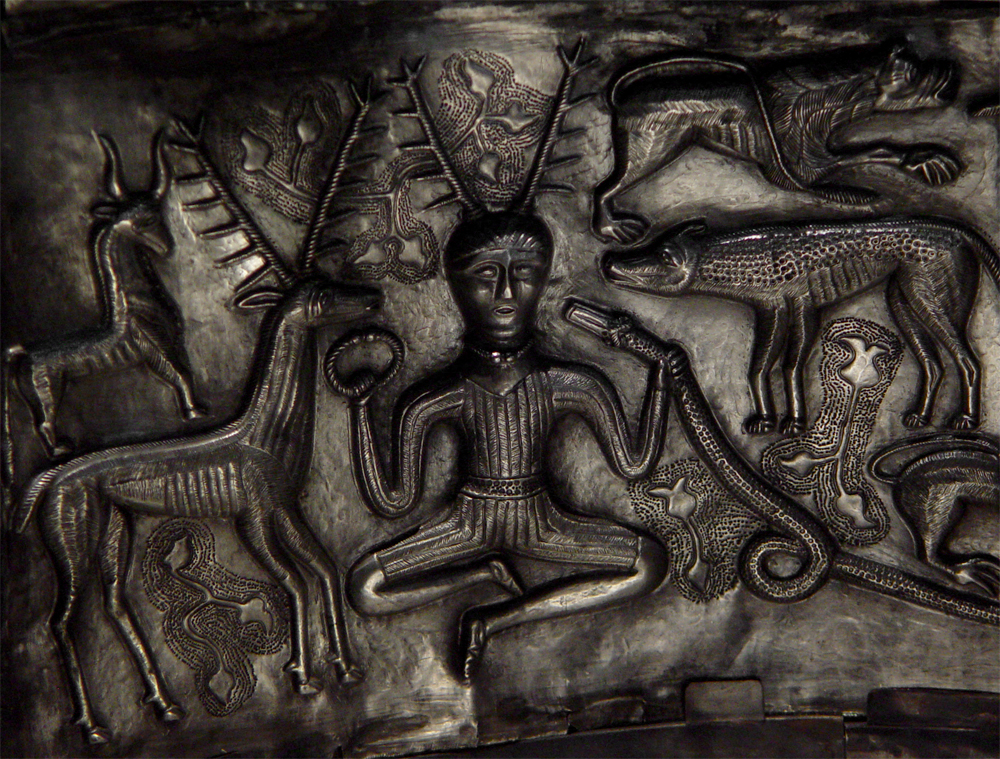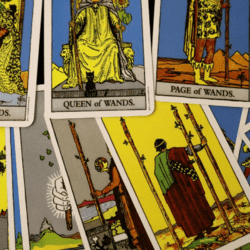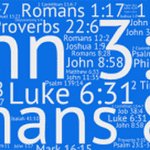I’ve been thinking a lot lately about Peter Grey’s talk “Rewilding Witchcraft.” A small taste:
Our enemies are not our sisters and brothers in the craft, they are the named individuals and corporations and their governments who are tearing out our living flesh. Witchcraft has never been about turning the other cheek to this. The witch has been created by the land to speak and act for it.
(A quick caveat: I realize that Grey makes some pretty sweeping generalizations about Witchcraft, Wicca, and Paganism. All I can say is that if that last line resonates with you, then you’re the kind of Witch he’s talking about.)
Grey’s essay is about the human-caused mass extinction event that no one wants to acknowledge. He explicitly states that “our loyalty lies” “in plant and insect and animal and bird.” He doesn’t talk much about people. Yet his essay comes to mind when I think of Ferguson, of America’s history of gunning Black people down simply for existing. His essay comes to mind when I think of the multiple massive interlocking systems that culminate in human bodies lying dead on concrete.
* * *
In Judaism there’s this concept of tikkun olam, or “repairing the world.” It started as a way of fostering social harmony through law, and was then refined by the Kabbalists into the mystical concept of repairing not just the world, but God him/herself. Then it gradually made its way into mainstream Judaism, so much so that it’s now pretty widespread even among secular Jews. The reason it’s so popular is that at its core, it’s so simple and commonsense. Anyone can see that we have broken our world. We must put it back together.
It’s been fairly easy for me to transfer this concept into Witchcraft. It’s more or less already present in the Reclaiming Tradition, which sees the world and everyone in it as the living, breathing body of the Goddess and views pursuing justice as a sacred act.
I think of repairing the world, healing its wounds, sucking out the toxins and applying nourishing balms, and my mind jumps to Lilith, the lamia, the badb-as-witch, the outcast woman, the hedge-walker, the sacred heretic, the fierce one. There is wildness in oppression, in the hysterical worship of military equipment, in a hatred of your neighbors so consuming that you call them “animals” when you’re the one with your teeth and claws bared. One of the most sickening things about the wildness of oppression is that it cloaks itself in rationality. It gaslights its victims. It denies its wildness even as it flaunts it.
My job, as a Witch, is to explore my own wildness–to embrace it and understand it and fashion it into a weapon that heals. My job is to embody that deep paradox. My job is to face it without denial, rather than ignore it and thus let it control me.
* * *
So, anyway, tikkun olam. I actually don’t have a whole lot to say about it, except that it needs to happen. Some common wisdom about justice work is not letting yourself give in to despair. I used to think I knew what that meant. Then, a few days ago, I let myself give in and emerged stronger.
Some context: my two-year-old daughter prefers my husband over me, to the extent that she sometimes cries if I’m the one who comes in to take her out of the crib in the morning. All the parenting websites assure me that phases like this are normal, but that doesn’t mean it doesn’t hurt.
While I was dealing with a particularly bad few days, I was also digesting the backlash against my last post–backlash that, it turns out, was likely at least partly motivated by antisemitism. (Tellingly, I haven’t seen comparable levels of outrage at other essays and articles about the Morrígan, including others that stray from convention.) You know what’s hilarious? I’m not even fully Jewish. I’ve been pushed out of Jewish communities for not being Jewish enough, and now I’m being challenged in Pagan spaces for being too Jewish. Blessed be the in-between places!
So the other day, with all that weighing on my mind and the curfew in Ferguson and the children fleeing drug cartels and the Palestinian lives that take a back seat to squabbles about who’s allowed to think what about which deity and by the way, those Nigerian girls still haven’t been found, I sat down to work on my prayer shawl. My daughter was playing on the other end of the couch and, without warning, she launched herself into my lap. She didn’t gouge an eye out on my needles, thank goodness, but she did make me drop two stitches.
Irritated (although later I’d be encouraged at the display of affection), I went upstairs to repair it with a crochet hook. I thought it’d be easy since I was still working on the garter-stitch border and hadn’t started the lace pattern yet. But, as sometimes happens when you try to fix something, I found that the damage went deeper than I thought, and the tools I was using just made things worse, and soon I realized that I’d have to unravel the whole project and start again. I began to cry. Then I began to rage.
For the rest of the evening I cried and raged. I let it all pour out. I gave in. I despaired. Because doing good can be so straightforward in theory but so difficult in practice. Because so many people tell themselves that hatred and division and power-over will fix the world, and then they can’t figure out why everything continually unravels around them.
I faced my despair and I let myself be wild. Then, after awhile, the despair subsided and the wildness relaxed into peace. I started the shawl again.
Isn’t that remarkable? At the heart of wildness is peace. At the end of despair is clear sight. Today my daughter gave me a Super Duper Toddler Hug and told me she loves me.
Here’s to a wild, healed, peaceful world, even if it only exists in our dreams.
Jewish Witch is published on alternate Tuesdays. Subscribe via RSS or e-mail!


















